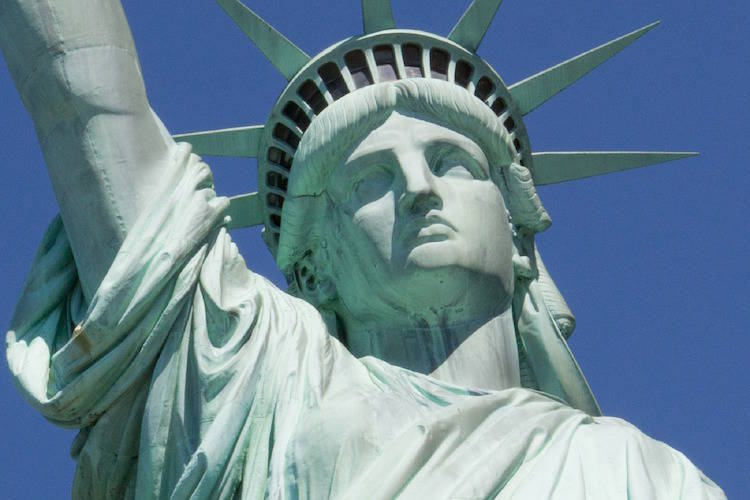Give Me Your Tired, Your Poor, Your Huddled Masses... But Not Your H-1B Geeks, L-1 Staffers Nor J-1 Students

President Donald Trump has signed an executive order suspending the processing of various immigration visas, including H-1Bs for skilled workers and J-1s for academics, for the remainder of the year.
The White House announced the move late Monday afternoon, following days of media speculation and a Sunday admission from the President himself that an executive order was imminent.
The Trump administration said the latest order, an extension of a similar proclamation issued in April, will largely block companies in the US from applying for H-1B visas for techies and other skilled employees, L-1s for managers and skilled staff transferring from overseas to America, H-2Bs for casual foreign workers, and J-1 academic visas, extending restrictions already in place.
There are some notable exceptions to the visa freeze. The order will not apply to any workers already in the country under those types of visas, or those outside with valid paperwork already in place.
Additional exceptions will be made for those who are the spouse or child of a US citizen, those whose work is deemed "essential to the US food supply chain," and "any alien whose entry would be in the national interest as determined by the Secretary of State, the Secretary of Homeland Security, or their respective designees."
We take that last part to mean your CEO will have to call in a favor.
Green card applications on hold from the previous executive order will also be paused to the end of the year.
In extending that April order, Trump continues to reason that, with so many out of work due to the coronavirus pandemic smashing the economy, Americans should be given first crack at job openings.
"The entry of additional workers through the H-1B, H-2B, J, and L nonimmigrant visa programs, therefore, presents a significant threat to employment opportunities for Americans affected by the extraordinary economic disruptions caused by the COVID-19 outbreak," the latest order reads.
It is unclear, however, how many unemployed Americans will be willing (H-2B covers temporary, seasonal labor) and/or qualified (H1-B is earmarked for specialized skilled roles) to do those jobs under the wages and demands being offered by employers today.
The White House reckoned that since the pandemic began, 20 million of those who lost their jobs were "in key industries where employers are currently requesting H-1B and L workers to fill positions," though that is a rather sweeping generalization. (Though, yeah, we know about H-1B fraud; it's a problem.)
The Trump administration's policies haven't been too popular in Silicon Valley, where 40 per cent of workers said back in 2019 they had been directly, negatively impacted in their work by the Trump administration's (even looser at the time) restrictions on H-1B hiring.
Designed to provide companies a way to bring in workers with highly technical skillsets, H-1B visas have been used in Silicon Valley to fill engineering departments with top international talent, boosting America's brains. There's also the argument that the US economy and its success is built on immigrants.
At the same time, it has been found that some organizations, particularly those who provide temp-work and short-term service contracts, were abusing the system to fill their ranks with low-cost workers who were beholden to their bosses to maintain their US residency. ®
Sponsored: Google Security Whitepaper
From Chip War To Cloud War: The Next Frontier In Global Tech Competition
The global chip war, characterized by intense competition among nations and corporations for supremacy in semiconductor ... Read more
The High Stakes Of Tech Regulation: Security Risks And Market Dynamics
The influence of tech giants in the global economy continues to grow, raising crucial questions about how to balance sec... Read more
The Tyranny Of Instagram Interiors: Why It's Time To Break Free From Algorithm-Driven Aesthetics
Instagram has become a dominant force in shaping interior design trends, offering a seemingly endless stream of inspirat... Read more
The Data Crunch In AI: Strategies For Sustainability
Exploring solutions to the imminent exhaustion of internet data for AI training.As the artificial intelligence (AI) indu... Read more
Google Abandons Four-Year Effort To Remove Cookies From Chrome Browser
After four years of dedicated effort, Google has decided to abandon its plan to remove third-party cookies from its Chro... Read more
LinkedIn Embraces AI And Gamification To Drive User Engagement And Revenue
In an effort to tackle slowing revenue growth and enhance user engagement, LinkedIn is turning to artificial intelligenc... Read more

